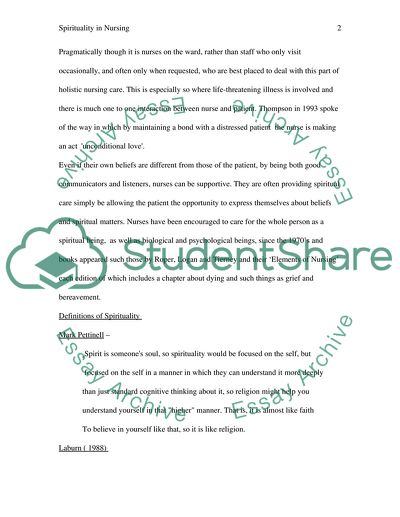Cite this document
(“Spirituality in Nursing Essay Example | Topics and Well Written Essays - 2750 words”, n.d.)
Spirituality in Nursing Essay Example | Topics and Well Written Essays - 2750 words. Retrieved from https://studentshare.org/nursing/1576091-the-concept-of-spirituality-in-nursing-practice
Spirituality in Nursing Essay Example | Topics and Well Written Essays - 2750 words. Retrieved from https://studentshare.org/nursing/1576091-the-concept-of-spirituality-in-nursing-practice
(Spirituality in Nursing Essay Example | Topics and Well Written Essays - 2750 Words)
Spirituality in Nursing Essay Example | Topics and Well Written Essays - 2750 Words. https://studentshare.org/nursing/1576091-the-concept-of-spirituality-in-nursing-practice.
Spirituality in Nursing Essay Example | Topics and Well Written Essays - 2750 Words. https://studentshare.org/nursing/1576091-the-concept-of-spirituality-in-nursing-practice.
“Spirituality in Nursing Essay Example | Topics and Well Written Essays - 2750 Words”, n.d. https://studentshare.org/nursing/1576091-the-concept-of-spirituality-in-nursing-practice.


